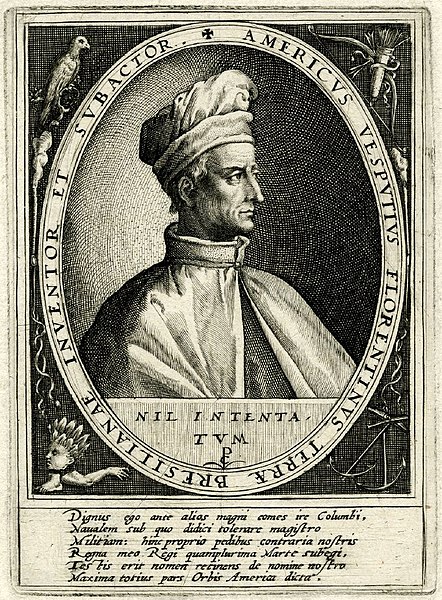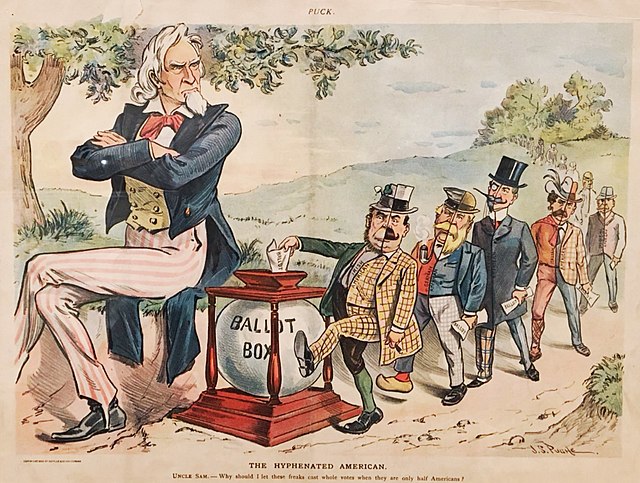The meaning of the word American in the English language varies according to the historical, geographical, and political context in which it is used. American is derived from America, a term originally denoting all of the Americas, ultimately derived from the name of the Florentine explorer and cartographer Amerigo Vespucci (1451–1512). In some expressions, it retains this Pan-American sense, but its usage has evolved over time and, for various historical reasons, the word came to denote people or things specifically from the United States of America.
America is named after Italian explorer Amerigo Vespucci.
Washington's Farewell Address (1796)
American ancestry refers to people in the United States who self-identify their ancestral origin or descent as "American", rather than the more common officially recognized racial and ethnic groups that make up the bulk of the American people. The majority of these respondents are visibly White Americans, who are far removed from and no longer self-identify with their original ethnic ancestral origins. The latter response is attributed to a multitude of generational distance from ancestral lineages, and these tend be Anglo-Americans of English, Scotch-Irish, Welsh, Scottish or other British ancestries, as demographers have observed that those ancestries tend to be recently undercounted in U.S. Census Bureau American Community Survey ancestry self-reporting estimates.
Cartoon from Puck, August 9, 1899 by J. S. Pughe. Uncle Sam sees hyphenated voters and asks, "Why should I let these freaks cast whole ballots when they are only half Americans?"
Flag of the Know Nothing or American Party, c. 1850




